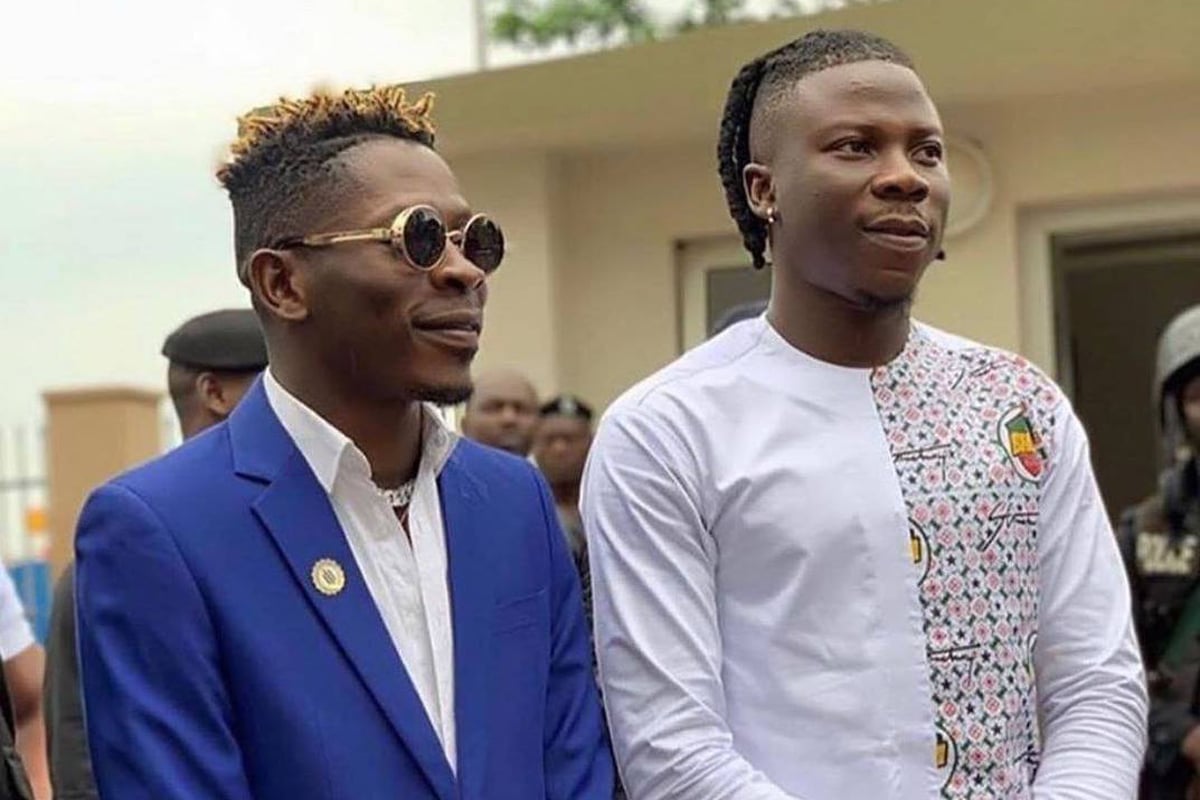Ghanaian Music President Says Shatta Wale, Stonebwoy Copycatting Jamaicans, Passing Off Highlife As Dancehall

The acting president of the Musicians Union of Ghana (MUSIGA), Bessa Simons, stirred up a hornet’s nest in the West African nation recently, when he said in a radio interview, that Ghanaian artists were copycatting Jamaicans and passing off Highlife music as Reggae and Dancehall.
In the interview on Asempa FM, Simons said all the musicians who claim to be topping the Dancehall genre such as Shatta Wale, Stonebwoy and Samini, are mostly doing “Highlife music” and not Reggae or Dancehall.
Speaking on Asempa FM‘s weekend entertainment show dubbed Tête-à-Tête, Simons who is himself a Highlife artist, said they were only mimicking the style of Reggae/Dancehall acts but they cannot be identified as such as they were not born in Jamaica.
“They are singing Highlife. Ask any better musician and they will tell you. Were they born in Jamaica? They are only trying to copy the Jamaicans,” the Belembe singer said.
According to the BBC, Ghanaian highlife is one of the oldest popular dance-music styles of Africa and emerged in the 1880s. It is described as “a fusion of rhythms from the West African coast and those from Europe, and black people from both South and North America”. It uses the melodic and main rhythmic structures of traditional Akan music and Kpanlogo Music of the Ghanaian people, but is played with Western instruments.
After Simons statements began making the rounds on Ghanaian online news sites, days later, radio presenter, OB Nartey, criticized the Highlife icon, for dismissing Shatta Wale, Samini, and Stonebwoy as wanna-be Dancehall artists, during a discussion segment on Entertainment Review on Ghana’s Peace 104.3 FM, according to Yen.com.
“I think this is the time someone aspiring to be MUSIGA president should be looking at comments, issues that would help MUSIGA. At this time, when the association has issues around it. And for someone aspiring to lead the association, this is the time to bring everyone together,” he said in the audio clip as he switched between English and his native tongue.
This is not the first time that Simons has made comments about Ghanaian artists being copycats. Last August, Ghana’s Power 97.9FM reported that he had made similar comments that “there is no real Dancehall musician in Ghana” and that “acclaimed dancehall musicians in the country are doing highlife music and not the Jamaican genre”.
“My friend you are singing highlife, you grew up in Ghana. I have worked with the Whites and knows how they play their music. I have also worked with Jamaicans, I even worked with pioneers of reggae music, I know how they play music, ours too, when you fuse Dancehall and others. All what they sing let me tell them they’re singing highlife,” Bessa is quoted as saying.
“When they are singing highlife, they say it is Dancehall, how?” he added.
Simons, when asked whether or not Stonebwoy and Shatta Wale, who are regarded as Dancehall superstars in the country, qualify to be referred to as such “per his criteria”, he said they did not. He had also gone on to outline “factors he believes has contributed to Ghanaian musicians shying away from the highlife music”, chief among them financial expediency.
“It is just a title. No, they’re not singing dancehall. I don’t mind the title you put on yourself, fine. You’d say you’re a Dancehall artist, fine. But I plead with you what you’re singing is Highlife,” he said.
“It could be highlife isn’t profitable or they don’t know where to take highlife because in our music world, there are other markets. Music there are vast markets…,” he said.
